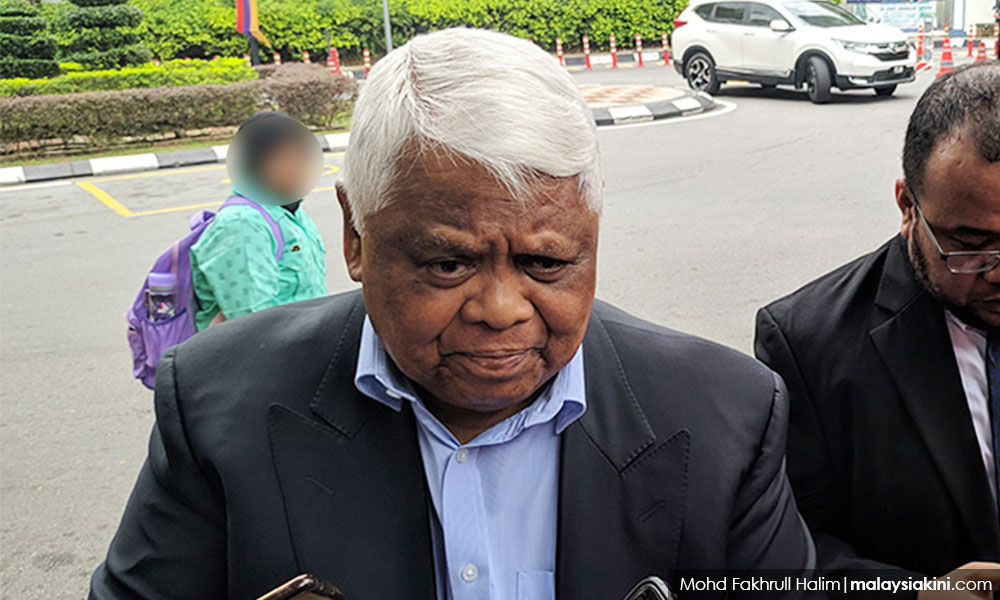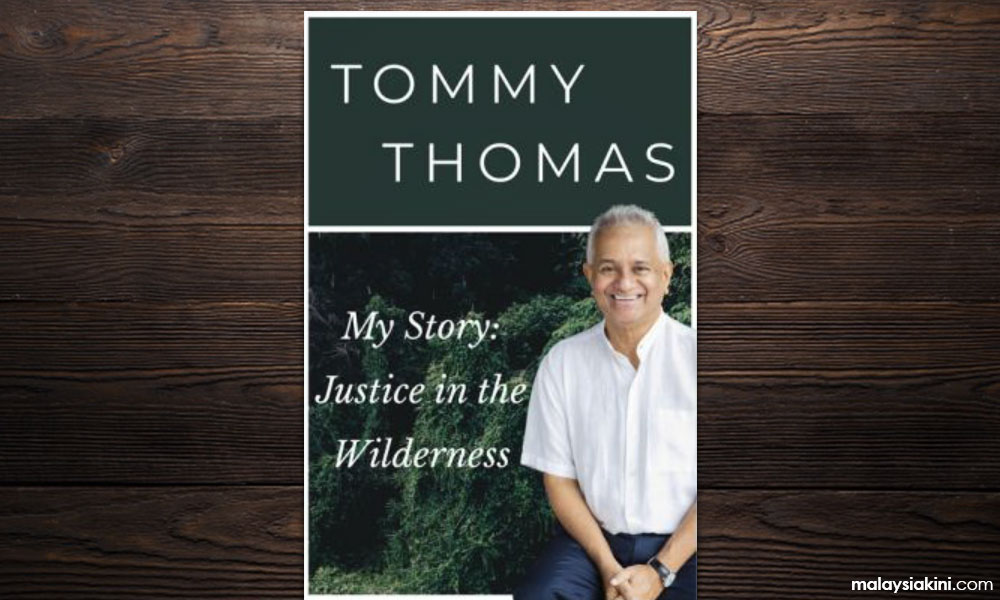Pakatan Harapan prime minister-designate Anwar Ibrahim has come out with a nuanced statement on a topic that is roiling the political arena – Tommy Thomas's memoirs My Story: Justice in the Wilderness.
The PKR supremo deserves credit for weighing into the raging controversy with comments that are neither excoriation nor encomium - extremes that commenters thus far have generally preferred as reaction to the book.
Anwar has chosen to qualify his comments about Thomas's account of his life and tenure as attorney-general between June 2018 and February 2020, a narrative that conveys Thomas's views on the high voltage issues that have troubled our history for more than half a century.
While lamenting the book as a “tragedy of generalisations”, Anwar is against its banning – “Silencing voices has never done the work of progress,” he argues sensibly.
In perhaps his most significant utterance, Anwar says Thomas's claim that the evidence points to then deputy prime minister Abdul Razak Hussain's complicity in the May 13 riots is based on “conjectures” and “borders on a conspiracy theory.”
More darkly, Anwar describes this claim as an affront to the collective consciousness of Malaysians, particularly the Malay community, that holds and cherishes Razak’s memory.
This opinion is notable for reason of an episode that Tamrin Ghafar, son of onetime deputy prime minister Ghafar Baba, related early last decade about a meeting that a delegation of Umno Youth leaders, headed by Anwar and including Tamrin, obtained in 1984 with then foreign minister Ghazali Shafie.
According to Tamrin, whose recall of the episode was carried by portals including this one, the topic of the May 13 came up at the meeting.
Tamrin said that Ghazali, who was information minister during the time of the riots, told the Umno Youth delegation that the police had conducted a study of the riots after matters had simmered down.

According to Tamrin, Ghazali said the police inquiry found that the riots were not a spontaneous conflagration but were started by people keen to engineer a putsch against incumbent prime minister Tunku Abdul Rahman.
Tamrin's recall of the episode, publicly aired early last decade, versions of which constituted the nub of Tamrin's theory of the May 13 riots which he retailed to GE13 campaign crowds in Johor in April 2013, was not contested nor affirmed by Anwar who had headed the team that met with Ghazali.
This is quite strange because Tamrin has not recanted his version of the meeting.
Guilty of racism
Now Anwar has commented obliquely on the causal factors behind the riots by averring that Thomas's opinion that the troubles were a coup by Razak borders on a conspiracy theory.
Now is the time for Anwar to give his version of what Ghazali was supposed to have revealed at the meeting in 1984 with an Umno Youth delegation that he headed.
Also, the recordings made of conversations the late Abdullah Ahmad, an Umno politician and diplomat, had with Tunku Abdul Rahman between 1982 and '84, supposed to have been published in 1985, but held back because of the explosive nature of some of the Tunku's opinions, cries out for exposure.
It is believed that Abdullah was advised to hold back on the publication because it would hurt some individuals close to Razak and that it was best to let these individuals pass on first before releasing them in the public domain.
However, Abdullah, terminally ill with cancer by 2015, decided in December that year to publish an expurgated version of the conversations, which book was formally launched in April 2016.
At the launch of Conversations with Tunku Abdul Rahman: 1982-84, Abdullah said he had handed the entire recordings to the National Archives, presumably for release at some future point when the coast – as far as individual sensitivities were concerned – was clear.

Coming back to Anwar's other comments on Thomas's book, note must be taken of his comment that Thomas is being one-sided in attributing the racism that blights Malaysian politics as the responsibility of Malay leaders alone.
Anwar argues that leaders across the race spectrum in Malaysian politics have been guilty of racism, plainly and subliminally, in their public and private speech and bearing and that it is time to have a healthy conversation about this malady.
No better anecdotal evidence of its pervasiveness can be had than an episode that occurred at Harapan's first presidential council meeting to name its cabinet held shortly after its victory in GE14 on May 9, 2018.
A participant was asked by the meeting's chairperson to state the portfolio he preferred.
The respondent specified whereupon it drew this reaction from another participant: that he could not have the post because of his race.
It was a startling reaction but said all it needed to about the depths of the malady that afflicts the country.
Anwar Ibrahim is right to point to the pervasiveness of this bacillus but would he be candid enough to concede its extents reach close to home.
TERENCE NETTO has been a journalist for more than four decades. - Mkini
The views expressed here are those of the author/contributor and do not necessarily represent the views of MMKtT.




No comments:
Post a Comment
Note: Only a member of this blog may post a comment.